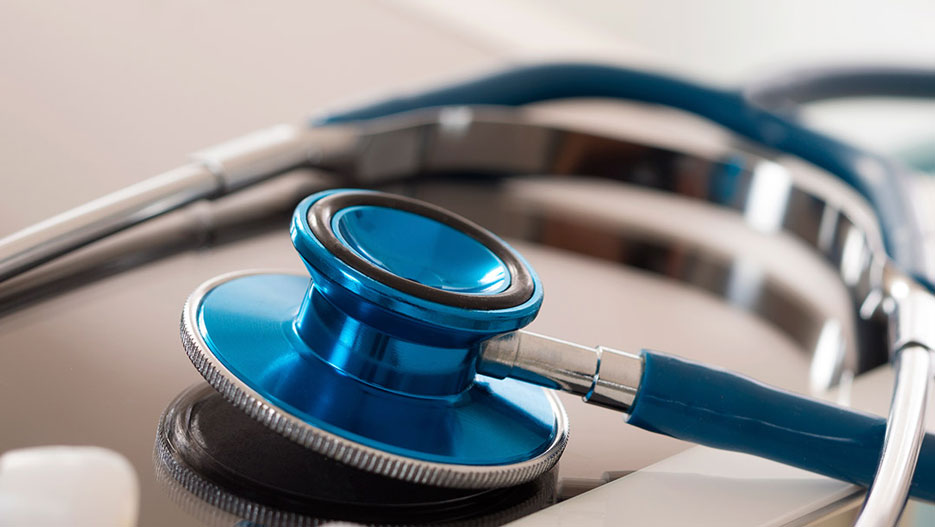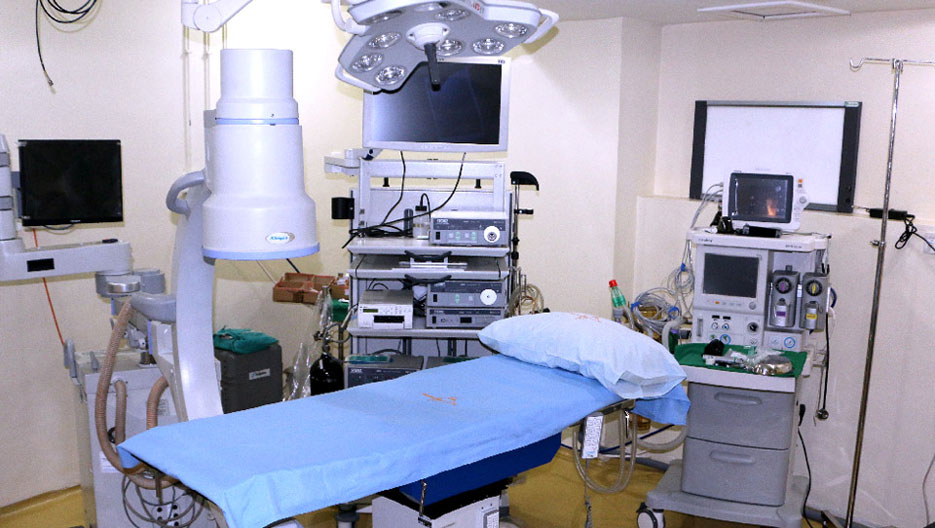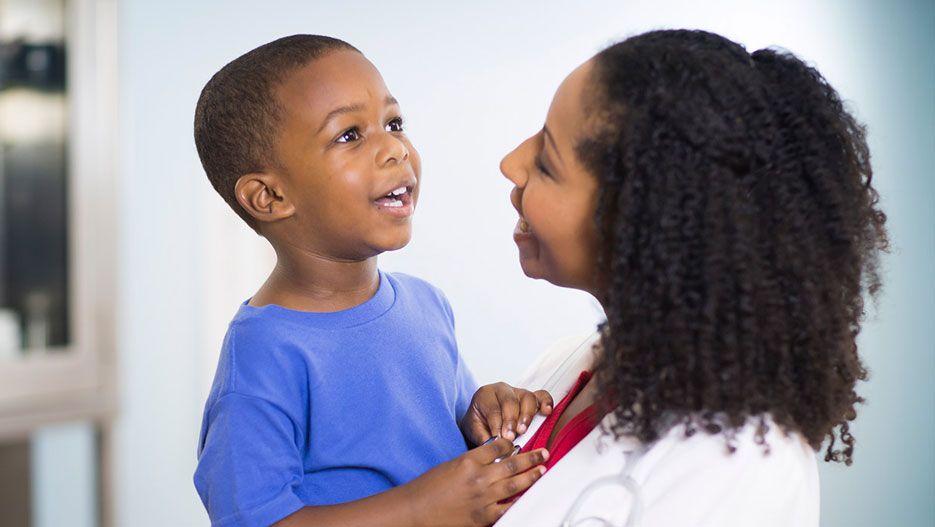Health and Medical Services in Nairobi: Apples + Sense Medical Center
Sweata Shah gives an overview of the health and medical sector in Kenya. She also presents Apples + Sense, a Nairobi-based medical center providing comprehensive services ranging from consultations, preventative healthcare and diagnostics to treatments and surgical interventions.
Interview with Sweata Shah, Managing Director of Apples + Sense
What is your overview of the health and medical sector in Kenya? Where does it stand in terms of services and quality?
We have good medical care across the board in Kenya but we are lacking in specialist services in certain fields. Many hospitals have been active for 20 or 30 years and have established a base here. They have been growing their cardiology and neurology departments, and their dialysis centers and other areas where the greatest need has been. The slightly less specialized sectors are not being focused on as much. The need is growing now in those areas, such as dermatology and ophthalmology. That focus is now starting to increase because Kenya has a medical school and very good medical training centers. There is the Kenyatta University Nairobi Hospital which does training for doctors and Aga Khan University as well. We are improving in training our people locally and having them gain expertise. We have very good nursing schools as well.
The healthcare sector started at almost nothing and in the last 20 to 40 years it has now started to pick up. Doctors are sponsored by supplier companies or the hospitals themselves to get training abroad and go out and expand in their fields, and then they come back home. What we have found in the last 10 to 15 years is that more doctors are coming back home and are starting to utilize the skill sets they have learned abroad and bring them back to Kenya. South Africa was a reference point before and was seen as the place to go in Africa. Kenya has issues with inter-Africa travel being very expensive. It is almost cheaper to go to Europe or India than to go to South Africa because you are paying almost $1000 to fly. So our patients are now rethinking where they go. About 70 percent of Kenyans go to India for further treatment. One of the things we are trying to do in Kenya is to bring medical tools into the country rather than sending them out. More specialist services are coming to Kenya. Doctors are getting trained and coming here and utilizing what they have learned. We are still not there yet. There is still quite a lot we cannot do in Kenya, such as, for example, certain types of chemo treatments. There is a large hospital coming up nearby which is sponsored in part by Margaret Kenyatta, the president’s wife, which will have a huge oncology unit. It is speculated that there will be 900 to 1000 new beds coming to Kenya in the next two years.

Kenya is starting to become the center of medical tourism for east Africa. Travel to Kenya is cheaper. Patients can jump on the bus instead of flying. The cost of living in terms of accommodation is much better. So the health services are picking up because they are a bit more affordable and access is much better. There is a lot of technology from South Africa starting to come to Kenya as well. Overall, the medical industry in Kenya is becoming more fruitful and growing much larger. For keyhole surgery, if you split Kenya into our younger doctors and our older doctors, it really is just a difference of thought process and training. Our older doctors are more used to open surgeries and longer recovery times with patients staying over at the hospital. Meanwhile, our younger doctors are getting trained in the keyhole techniques. The older doctors are now being trained as well and improving, and they are pushing now to learn more in terms of keyhole techniques and day surgery. Europe, the UK and the US are all moving towards a day surgery concept. That is the way forward and it is why we have done things the way we have. However, you cannot solve everything with day surgery. There are still many procedures that require more extensive surgery, but keyhole surgery eliminates quite a few. It is somewhat of a challenge because insurance companies here are still not accepting that. You have to talk to them and make them understand the benefits of it. Oftentimes, doctors will argue that they are being asked to do day surgery but the insurance company will not accept it. My solution is that if you push the insurance companies, actually, they are quite understanding and they realize that we do not have to pay for a patient to stay overnight when they can go home the same day. Also, there are the obvious benefits of day surgery such as quicker recovery times, less risk of infection, and the patient going home. One of the reasons I came back and we are doing this is because there is still frustration that often someone in the family would get a patient calling to say they need to fly outside of Kenya and asking where they should go. I tell them that they do not need to fly outside of Kenya when they can get good care here. It is about identifying who you want to see and building a rapport with your doctors. That is where we see the healthcare industry moving.
Currently, the big focus points are areas such as cardiology, neurology, dialysis, ophthalmology and ENT. There is a big oncology center coming and a big cardiac center coming soon. So those things are now starting to be focused on a lot more with newer techniques coming in and the influence of doctors who have a lot of experience coming and doing training programs. More training schools are being created.
The biggest hitch right now in Kenya is the availability of human resources. We do not have enough doctors being trained. We do not have enough nurses coming out of the system. There is a movement right now to try and create more training schools, create more trained professionals, because we just do not have enough centers to care for everyone at this stage.
Now focusing on your institution, where did the name for Apples + Sense come from?
When we started out, we did not want a name like a medical center or healthcare center. “Medical center” is a bit obvious, but it also makes patients think they are ill and have to go somewhere. And many people associate “healthcare” with the insurance companies or some sort of broker. So we wanted to do something different and we thought about it for a long time and came up with “Apples + Sense“. “Apples” because of the saying “an apple a day keeps the doctor away.” Not that we do not want to have patients here, but we are focused more towards things such as preventative care. If we can see you soon enough, then you do not have to end up seeing us all the time, and we can deal with your problem sooner. “Sense” because when you follow your common sense, you go to see a doctor. So we ran with it and it seems to be working. It is a very different, new concept but we are starting to build the brand and create a name behind it.

Apples + Sense provides comprehensive services ranging from consultations, preventative healthcare and diagnostics to treatments and surgical interventions by a team of experienced medical professionals. Could you give us an overview of the center and services it provides? Besides, you are also about to open a fertility center, right?
We have a very well trained, very diligent, very empathetic staff who understands the motto “patients first,” and it will always be that way for us.
The concept is a day surgery medical center. The idea behind it is to have all the services in one place. If a patient comes in for a consultation, for example, and they then need a diagnostic procedure such as a laboratory test, an X-ray, a mammogram or an ultrasound, we have everything here and they do not have to keep going and coming back. Generally, most of our patients do not have a large amount of time. They are working and have to take time off from work to come get themselves checked out. So we start with our GP service, which is a General Practitioner clinic, and we try to get most of our patients seen there. From there, if they then need to see a specialist, then we will refer them on to a specialist. Many of the specialists work with us. Our doctors work on a locum basis. We have clinics in either the morning or afternoon set up for them. We have an orthopedic surgeon, gynecologist, and an ear, nose and throat specialist. We have tried to vertically integrate all our services. We have an audiology service in conjunction with the ear, nose and throat services. We have linked our physiotherapists with our orthopedic service. With gynecology we have gone the other way, further up into fertility. Our consultation base has the full backing of the laboratory where we run our own in house lab tests and a radiology department with X-ray, mammograms, and ultrasound. We also have a dental unit which currently has two sides to it that we hope to expand. The first is our pediatric dentistry and we also have a pediatric specialist here. We then offer implants, general dentistry, and we are hoping to eventually grow into orthodontics. We also have a dental OPG for imaging. All of that is backed by our pharmacy, which is not retail but purely for the convenience of our patients. They are seen by us first and before they leave, if they need a prescription, then they can get it from us. If we do not have the prescription in stock, we will deliver it to their home for them.
The second side to our center is our day surgery theatres. We have full endoscopy laparoscopic equipment where we can run these quick procedures. We can do diagnostic procedures and more. If a general surgery patient might need a lump or bump removed then they can have that done. It is normally about a half hour to an hour procedure. They spend a few hours in recovery, and then they can go home. Because we are day surgery and not an emergency center, most of our patients are screened quite heavily before they come in for surgery because we cannot risk them having issues. If we have a patient with a lot of medical issues, we actually ask them to not be seen here and instead will send them on to a hospital where they can be seen in a setup that can look after them well. This way, we are managing that risk factor.
More recently, we have moved towards the fertility center which uses IVF. We have partnered with a very experienced doctor named Dr. Goswamy who trained in the UK and set up a center there, then moved to Mauritius for the last ten 10 years and now is coming down to us. He has trained under the inventor of IVF, Patrick Steptoe, and he has been performing IVF for over 30 years now. He spent the majority of his career looking at why failures in IVF occur and how to combat them and how we can give patients and couples the best chance every time we perform IVF or any other conception procedures. There is a huge stigma around IVF in every country because people do not want to talk about it, they do not want to tell you when they are having problems conceiving. Some people are embarrassed, ashamed, they feel inadequate. For the men, it is a big knock to their egos. There is a lot of counseling involved, a lot of recognizing that it is okay if you are not managing on your own. Come see us. We are able to help you. At least, let us determine what the problem is and how we can help you solve it. Most cases do not actually need IVF treatment. It is the last option. There are a lot of things we can try beforehand to see if we can get you to conceive naturally. It is a new service for us and very exciting. It should do very well because there is a huge need for it in Kenya. There have been many articles recently that report a lot of violence associated with people not being able to conceive. Recently, there was an article in the paper where a man had chopped off a woman’s arms because she was never going to conceive. During the investigation, she actually supported him. It could have been a small thing to fix with a very minor procedure for him. The main aim of setting up our fertility service was to help people. We are in a country where our culture demands us to have children and it creates a status in the family.

How would you describe Apples + Sense’s philosophy and what makes stand out from other medical centers?
The hospitals all do effectively the same thing, and probably much more. There are one or two other centers in Nairobi who offer a day surgery service. We are different because we are beautifully set up. We have a good group of doctors who all think and work in a similar way. Our whole focus is patient care, always first and foremost. Quality for us has to be consistent. We cannot have two patients come in and they both receive two different types of service, one very good and one rubbish. We want people to say it was really good every time. It is the quality of service and providing it consistently, but also giving it at an affordable price. In the market, we are probably on par with a lot of the services we offer in terms of cost. We have tried to be as fair with the pricing as possible and lower the cost where we can. It is not about making huge amounts of money for us, it is about patient care. Waiting times are never more than ten minutes. If you go to the hospitals here or to see a doctor in their clinic, you could wait two or three hours. It is very frustrating. A person is not feeling well, and then they have to wait and they have a whole queue of people in front of them and the doctor has not even arrived. We do not book patients unless we know for a fact that the doctor is here. It is just the general level of service we provide. We have a very well trained, very diligent, very empathetic staff who understands the motto “patients first,” and it will always be that way for us. We are not really providing anything different in terms of the actual service and the consultation we are offering. Where we are different is the service we provide overall, and the experience that the patient goes through from the minute they walk through the door to the minute they leave. After that, we do things like call our patients 2 days after to ask how they are doing and if their appointment went well. We want to know that our patients feel like they are being cared for and that they are not forgotten about. For us, the sell factor here compared to any of the other services is purely the service that we provide. We focus on certain specialties, but we are not really doing anything different in terms of the care we give, the consultations we do, or the treatments we give to our patients. We are trying to bring in more technology and more of the newer techniques, but our service offering is at a different level and we will maintain that.
What are the main challenges to be faced by the health and medical sector in Kenya?
Access to healthcare is better in Nairobi than anywhere else in the country. But the minute you start to leave Nairobi, we just do not have the services available. We have a lot of our hospitals doing outreach clinics now, but it is basic service, only a doctor or clinical officer who screens patients. If that patient needs any further care, they still have to travel to Nairobi, which is an added cost for them. Affordability is poor in over 50 percent of the country. We have a national healthcare system but it operates very differently from the NHS in the UK, or other equivalents in Europe. We have government hospitals and private hospitals that are expanding and doing outreach centers, but affordability is still an issue. The NHIF recently expanded their scope of services and how much money they provide to individuals for care. It is starting to move in that direction, but the biggest challenge in Kenya is the number of healthcare professionals available. Everyone wants to work in Nairobi. People do not want to go out to the suburbs where the element of social life is lacking. So how do we convince our medical professionals to be based in a remote area which may be full of disease? They might have a family of their own and then their concern becomes how they are going to access care themselves. The challenge is there and it will only improve as we start training more professionals or we have more professionals who are interested in becoming medics or healthcare workers and want to provide that care to more patients. But location will always be a big issue. It is a challenge worldwide. It is the chicken and egg situation. We have to try to solve this whole equation as a country.

Are you involved with CSR?
Apples + Sense is very new. We have only been running for about eight or nine months, but we have already started working with some of the Catholic missions nearby. We have day surgery services and theatres, and they do not in terms of the equipment. There are two sides of town in Nairobi. There is Muthaiga on one side of the highway and Nairobi Hospital on the other side and up a hill. So their patients are traveling from our side all the way to the other side to get care. We are trying to bandwidth the Catholic missions and offer them very subsidized rates or if we can in the long term try to band in an element of full CSR for the patients. We need to get things moving here first before we can truly contribute back. With the fertility side as well, we want to really work towards providing CSR because the cost of fertility treatments is very high, which makes it not affordable or accessible to many people in Kenya.
What is your vision for the future of Apples + Sense medical center in the next 2-3 years?
In the next 2 or 3 years, we want to expand this service, learn, and build up our knowledge, and then develop the group into two or three more similar medical centers. We are looking at hopefully one more center in Kenya, and after that outside of Kenya in East Africa. There is not a lot of good care in Zambia or the rest of the copper belt region. We have factories in that region as part of the family group and when I went on a tour, I saw that there was not a lot of access to good medical care there. Ultimately, in ten years, we would like to be in a hospital space under the same planning.